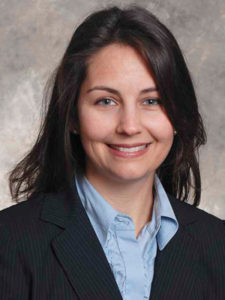
This year’s Business/Administration track at the ACR/ARHP Annual Meeting will help attendees keep up with new and evolving guidelines, laws, and regulations.
“This year’s Business/Administration track highlights valuable sessions for clinicians, practice managers, and business administrators that focus on how care will be delivered today and in the near future,” said Elizabeth (Blair) Solow, MD, Assistant Professor of Medicine in the Division of Rheumatic Diseases at UT Southwestern Medical Center in Dallas, TX, and ACR Committee on Rheumatologic Care liaison to the Annual Meeting Planning Committee.
Following are some of the highlights of the 2018 Business/Administration track:
Pre-Mtg: ACR Practice Management: Putting the Pieces Together—Winning Strategies for Rheumatology Practices (7:00 am Saturday, October 20): “Fee for service [FFS] is being replaced by a value-based and coordinated care model, yet physicians are familiar mainly with FFS contracting,” Dr. Solow said.
This pre-meeting workshop will bring together payers and providers to discuss the current landscape for payers (Medicare, private) in utilization of clinical data and future policy on reimbursement.
ACR: PBMs & Providers: Superior Patient Care Through Transparency (9:00 am Tuesday, October 22): “The relationship between rheumatology practices, manufacturers, and pharmacy benefit managers (PBMs) has been in the forefront of the news recently,” she said. “This session highlights what a clinician needs to understand about how these entities function and how we can address patients’ access to medications in a timely way.”
ACR: Sustain Your Practice: 2018 Medicare Update on MACRA & APMs (9:00 am Sunday, October 21): “MIPS and MACRA are in the second reporting year,” she said. “This session will feature the latest information on the progress made by the ACR working group in RA APM development and guidance in MIPS to help ensure success in this new landscape.”
ACR/ARHP: Assessing the Roles of Physicians and Health Professionals in Medicare Payment & Delivery Models (1:00 pm Sunday, October 21): “MACRA is the most comprehensive reform of Medicare since the creation of the Affordable Care Act in 2010, with policy changes intended to drive payment reform from its traditional fee for service to a new risk-bearing and coordinated care model,” Dr. Solow said. “This session focuses on what the ACR is doing for its members by developing an RA APM and will highlight a rheumatology practice in Washington state where they have implemented change to accommodate these new laws while maintaining physician autonomy.”
ACR/ARHP: Integrating Pharmacists Into the Workforce (4:30 pm Monday, October 22): “Rheumatology healthcare providers recognize that the burden of rheumatic disease requires an integrated team, yet pharmacists remain largely underrepresented in the rheumatology care team,” Dr. Solow said. “This session highlights how pharmacists can be influential team members and how outcomes, such as costs and patient disease activity, can be improved with an integrated approach.”
ACR: Using Clinical Data to Drive Impactful Payer-Provider Collaboration (9:00 am Monday, October 22): “Payers and providers face challenges in sharing meaningful information to facilitate collaboration in regard to value and reimbursement,” she said. “Analytics of clinical data can play a critical role in helping to create timely, measurable information that could improve provider performance over time.”
